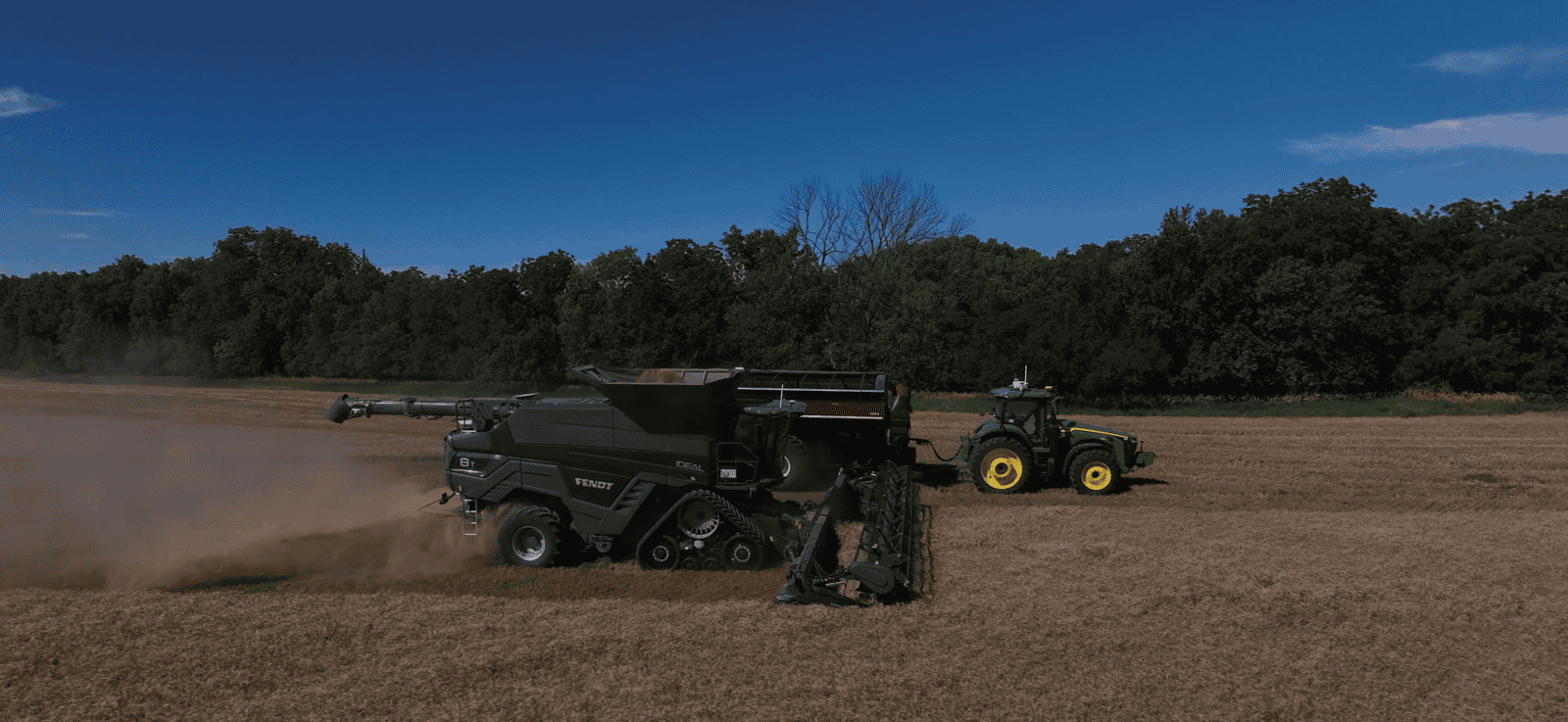
Darcy Cook, the General Manager of Winnipeg-based JCA Technologies, has vivid memories of the summers he spent working 13-hour days on his uncle’s northern Manitoba ranch. Though he enjoyed the experience, his interest lay in how things worked, which is why he ended up with a degree in Computer Engineering from the University of Manitoba. But that teenage exposure to the agricultural sector has paid dividends in his current role, including leadership of his company’s CAAIN-supported project, Agricultural Autonomous Controls Framework. “I spent the early part of my career in the high-tech sector, including aerospace and medical imaging design. About 10 years ago, I connected with JCA founder John Anderson, who was looking to add an engineering and technology division, and I haven’t looked back.”
The timing was fortuitous, as the advent of smartphones ushered in the development of wireless capabilities, which in turn paved the way for the integration of autonomous tech in various industries. As JCA’s customer base included a number of farm implement manufacturers, it made sense that the company’s foray into engineering would focus on the ag sector.
“Our expansion into implement automation began in 2013, expanded to autonomous systems in 2016, and required us to build capacity in areas such as navigation and controls, advanced sensing, and machine learning. This kind of engineering requires a specific suite of skills and expertise we didn’t have at the time. But those efforts have paid off, and I believe none of our competitors can match what we’ve done in AgTech automation. But because our devices are primarily ‘under the hood,’ our customers are often the only ones who know that JCA gear is responsible for the electronic controls.”
“We’ve developed a set of products that serve as a platform we can customize for many different implements, according to specific automation needs,” Darcy explains. “That’s one of the strengths of our technology. It’s adaptable and brand-agnostic, which means it can be integrated into the manufacturing process by OEMs, or used to retrofit older machines. We match our customers’ expertise regarding what their machines are meant to do, with our expertise on the controls side of things.”
Their work was so good that in May of 2022, one of their clients, AGCO Corporation, bought JCA. Until then, Darcy and his team had focused above all on working with OEMs. But now retrofitting older equipment has become a big part of their efforts. That’s not just good for business. It’s good for the environment because instead of having to buy new to benefit from automation, farmers can simply upgrade their existing equipment. However, the biggest value lies in what JCA sees as being its primary mandate, which is to make farming more efficient by automating repetitive tasks and allowing operators to spend time on more complex activities that require their expertise. That’s where the company’s experience in manufacturing agricultural implements is so important. Its engineers have a deep understanding of farming operations, and can partner with their customers to develop appropriate solutions.
So how does it work? “The framework whose development CAAIN is helping to fund is a hardware and software stack.” Darcy thinks for a bit then comes up with an analogy. “Just as humans use our brains to learn to regulate a variety of activities, our platform can be trained or adapted to control different agricultural functions. Our engineers are developing an elegant solution to complex problems. The hardware used in French vineyards is the same hardware used in California orchards and to harvest broad-acre crops in the Canadian Prairies. What changes is the task that hardware controls. And that’s a function of what the producer believes will provide a return on investment.”
The JCA team is continuously upgrading its technology and solving problems. Every job comes with its own set of challenges, but there are certain constants, including safety, which is an ever-present concern. The complexity of that issue alone keeps Darcy’s engineers busy, and it’s easy to understand why. First, we’re talking about really big machines that, in some cases, are driving themselves. Then there are matters such as uneven ground, multiple pieces of equipment operating at the same time and in close proximity to one another, and the different types of human-implement interaction, depending on the function and the type of crop involved. The requirements are dizzyingly complex, which makes JCA’s success all the more extraordinary, and validates CAAIN’s decision to fund the project.
“I can say confidently that JCA is now a world leader in the development of autonomous agricultural technology. A year ago, we had 30 engineers. Today we have more than 50 with no end in sight. I believe our success will contribute to Winnipeg’s becoming a global AgTech hub.” Darcy pauses, then concludes, “And we have CAAIN to thank for much of that because such rapid growth wouldn’t have been possible without your support, and in such a fast-moving industry growth is critical to long-term viability. It’s about more than supporting the development of our platform—though obviously that’s huge for us. It’s about laying the groundwork for a new and exciting industry. We’re talking about the most important agricultural advance since the tractor 100 years ago. In the next five years, autonomous farm machinery will explode onto the scene and go from being relatively unknown to being everywhere. And thanks in large part to CAAIN, JCA will lead the way.”
CAAIN Contribution
$3,305,866
Total Project Value
$9,670,255
Project Contact
Darcy Cook, P.Eng.
Head of Autonomous Solutions
PTx Trimble
darcy.cook@ptxtrimble.com
Project Video